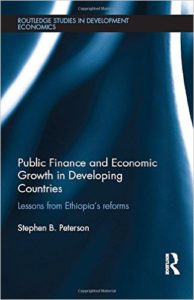State-owned enterprise Reform Roundup

Authors: David Fellows and John Leonardo
PFMConnect’s state-owned enterprise (SOE) Board on Pinterest for the first half of the current year demonstrates the financial burden that SOEs can impose on governments and the resulting dilemmas that arise. SOE services range from oil producers, insurers, railway operators and broadcasters. They can be large or small and some states have a vast number of them. Tensions arise between the desire to retain state ownership to exercise control over pricing of essential services for the benefit of the poorer members of society and concerns over the effects of poor management and lax governance that can create unacceptable service standards and high prices.
States are giving consideration to a variety of improvements including outright sale, partial sale through stock exchange listings, governance reform, increased professional representation on management boards and the rationalisation of sprawling conglomerates.
It is very clear that in many countries the financial drain of SOEs on the exchequer and the political burden of justifying their poor performance, lack of transparency and corruption are leading towards a raft of drastic measures. The question remains as to whether chosen solutions will be seen through to successful outcomes. Slow progress with partial privatisation by some states raises a few doubts.
Some of the Pins that reflect these concerns are, as follows:
An IMF press release on 26 June reported that the Executive Board of the International Monetary Fund had concluded the Article IV consultation with South Africa. In the accompanying statement the IMF made the point that ‘The public sector’s balance sheet is … exposed to sizable contingent liabilities from state-owned enterprises’.
The Southern Times reported on 26 June that South Africa, Namibia and Zimbabwe had all experienced problems with SOEs. As a result, South Africa and Namibia had both established ministries specialising in the management of SOEs. The Namibian Government was considering obtaining stock market listings for most commercial parastatals having spent in excess of R$1 billion in the past few years on financial bailouts. The report also quoted the Zimbabwe Sunday Mail as suggesting that the Zimbabwean Government had a list of around ten parastatals that were essential to the economy but needed urgent restructuring to and achieve profitability and improved service delivery. Governance reforms were also needed.
The Telegraph, India on 15 April reported that the Government was in the process of selling stakes in a series of SOEs through stock exchange listings. This included the Steel Authority of India Ltd, the Indian Oil Corporation and various railway and defence companies.
Radio Pakistan on 24 January quoted Finance Minister Ishaq Dar as expressing concern over SOE losses. He stated that the government intended to improve transparency and progress the privatisation of state enterprises.
The Lusaka Times on 23 April reported that the Zambian Government Minister of Finance, Felix Mutati, had expressed the Government’s commitment to deal with the financial impact of SOEs on the state’s finances and was introducing legal reforms to enforce fiscal discipline.
Ukrinform reported on 3 April that the Ukrainian Prime Minister, Volodymyr Groysman, had announced to his Cabinet the intention of selling some 3,500 SOEs that were ‘absolutely ineffective’ and ‘of no strategic importance’. He considered that this would lead to economic improvements.
Finally, looking back almost a year The Financial Express, Dhaka voiced a relevant concern on 18 November 2016 when it reported that no appreciable progress had been made towards Bangladeshi SOEs gaining listings on the stock market. SOE officials cited disinterest of investors in the loss-making concerns. Some commentators suggested that the lack of progress was related to board members’ objections to investment income accruing to Government rather than SOEs and their fears about the loss of personal entitlements.
